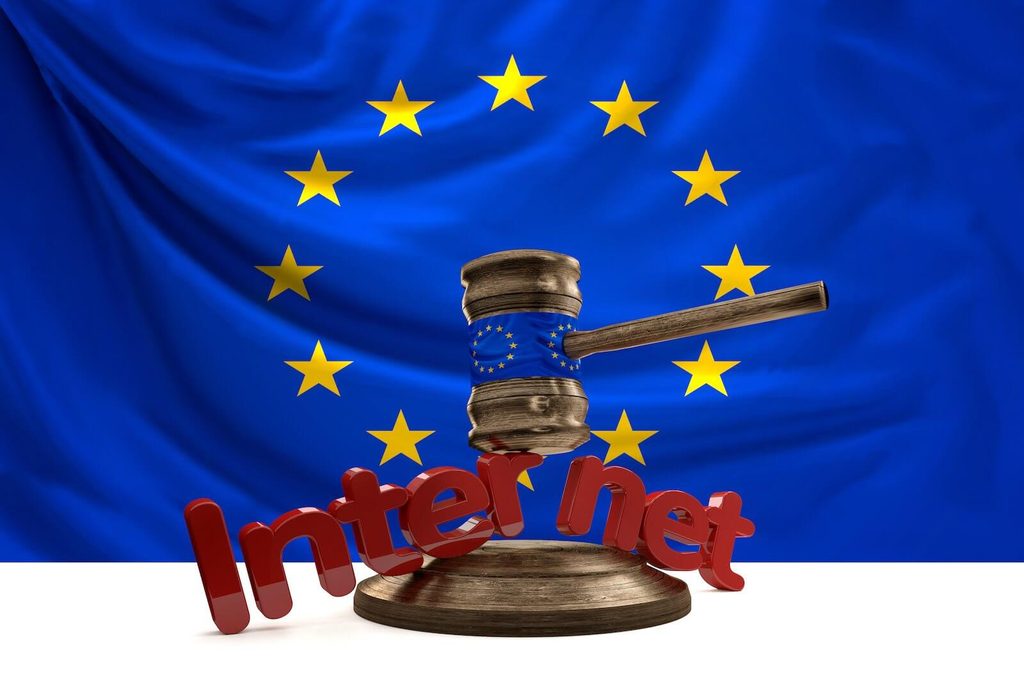The European Union Parliament was quick to fall back into scrutiny after their short-lived positive limelight due to the widely popular GDPR legislation. Behind the scenes but quickly coming to the public’s eye (especially after passing the vote in the JURI Committee) is Article 13.
Article 13, “The EU Copyright Directive — or to give its full name, the Directive on Copyright in the Digital Single Market — is Europe’s attempt to harmonize copyright laws across all member states.”, is another regulatory policy that will not just impact citizens and residents in the European Union (EU) but also greatly impact the architecture and design of the internet. Accordingly, it impacts most of the world and this time it’s easy to highlight, as opposed to GDPR, how this legislation benefits the ultra-affluent and powerful established industries while greatly and negatively impacting the general public. And once again, users and businesses that have nothing to do with the EU are in panic mode preparing for the potential impact on their livelihood.
Summary
The legislation will focus on sites that allows users to upload what may potentially contain copyrighted material, but to the extreme. An example being, if a participant in a YouTube video is wearing a Star Wars t-shirt then Disney could theoretically ask for the content to be removed from the platform. All content will be controlled and filtered by the platform’s respective content filtering system, networks of bots, or reported by the supposed rightsholder for the following types of content: text, sounds, code, any type of image and video…basically anything. The filtering system must be set up by the website/platform itself. The business will have to pay for the technology to match submissions that will identify exact and near matches. Included in this system is the process to permit rightsholders to update the copyrighted list. What could go wrong?
Little Guy Bites the Dust Again.
In the quest to reap the spoils from Facebook, Google, and other tech giants, the EU Parliament has created a legislation that best represents the entrenched and struggling industries in Europe, e.g. media, including television, news sources, film, etc. As with all legislative power struggles between large sectors the startups, content creators, entire creative communities, and the user will be the most impacted. Boing Boing editor Cory Doctorow didn’t mince words and when asked what the purpose of Article 13 is, stated:
This is about giving a loophole-free tool to German newspaper publishers to get paid by Google, and the fact that it has to be loophole-free or they think Google will jump through the loophole means that they have to catch a lot of dolphins in their tuna net.
I think that it’s not that they want to censor all the rest of the internet. I think that just in their quest to get Google and Facebook and a couple other big American companies to share their spoils, they’re willing to sacrifice everything else.
It’s not malice, it’s depraved indifference. Source
The websites that have the most content and have already had the time and funds to create a copyright filter are the ones targeted. But to come into compliance and keep in compliance smaller businesses and start-ups face a huge roadblock, funding for such a system being the main issue.
Bots to Do the Work, Yeah Because That’s Worked Before
One of the greatest critiques of Article 13 is the review process. The review process will be completed by bots which raises the concern for false flags, abuse by competitors, large businesses, political, and religious institutions. Furthermore, the amendment process is still unclear. How long will it take? A lengthy review process due to an automated mistake or a false submission by a supposed rightsholder could greatly adversely impact the revenue of a content creator. Quick to penalize, slow to amend.
Protect the Users, the Users Are the Internet
There is yet a legitimate argument that has been articulated which supports that this legislation is beneficial to the fabric that makes up the internet, which is the users and their interactions. While the large pre-internet companies, whose self-interests would be protected under Article 13, do contribute to the architecture of the internet, they are by no means irreplaceable or invaluable. As with any system that is made up of the populous, it is the populous and its actions, opinions, and trends that keep a system functioning. Article 13 doesn’t protect or benefit users, it does quite the contrary. Not only will users experience an abrupt change in the content, those who produce the content that we users love and appreciate could possibly be suffocated and put out of business by this legislation.
Communia highlighted multiple aspects of how Article 13 depreciates fundamental user rights on the internet as well as a critique of the content filter:
The upload filters are user-rights blind
Not every unsanctioned use of someone else’s content is an infringement — copyrighted works are regularly used without permission in quotation, parody, for private use, or under another exception or limitation. The filter likely will not recognize these types of uses, and as a result the legal use of protected material will be constrained. This type of a system, combined with an ineffective redress mechanism, will create a chilling effect that will thwart users’ rights online.
From the perspective of European case law, upload filtering goes against existing CJEU rulings, in particular the Sabam v Netlog case. Hosting providers would likely be included in the wide range of online service providers affected by the proposal even though they are explicitly excluded from any broad obligations to filter content in the Sabam ruling. In that case, the CJEU made a point to note that filtering threatens freedom of expression. Filter systems fail to strike a fair balance between copyright and the freedom of providers to conduct business, not to mention the ability of users to secure their personal data.
Within the current technological environment, the content recognition system proposed by the Directive is equal to a “system for filtering information” considered by the CJEU. As such, the Commission’s proposal is in contradiction with the E-Commerce and EU case law.
…the EU legislator should make sure additional requirements placed on online platforms take users’ rights into account. Any measures employed to settle disputes over the use of copyrighted content by users must respect fundamental rights. Additionally, users should have access to transparent information about the functioning of measures and/or procedures as proposed by the EU legislator to target copyright infringement. This information must be verifiable by the affected users, and users need to have meaningful ways to contest decisions regarding or actions against their uploaded content. Members states should be obliged to ensure access to courts for users whose rights may have been infringed by the measures taken. Finally, users should be represented in any fora which attempts to define best practices for functioning of the agreements and proportionate application of any measures. Source

A Form of Censorship, Intentional or Not
Censorship doesn’t have to come from government to be considered censorship. If a government, in this case the EU Parliament, creates a tool in close coordination with the private sector and then the private sector uses this tool to control what content is and isn’t approved, we can consider this a form of economic censorship or suppression, not to mention the form of political and social censorship such a powerful tool can promote. The opinion that Article 13 would be used for censorship purposes is not theoretical, but as Cory Doctorow illustrates, is already a manifested in practice in China:
The controversial measures in the new directive have been tried before. For example, link taxes were tried in Spain and Germany and they failed, and publishers don’t want them. Indeed, the only country to embrace this idea as workable is China, where mandatory copyright enforcement bots have become part of the national toolkit for controlling public discourse. Source
It’s not a matter of if, but HOW self-interested parties will use this policy and its tools against opposing business or ideologies.
What’s Next — How Do We Defeat It?
If you have the same opinion as most informed users, businesses, and third party watchdog groups that Article 13 must be deleted, then there is hope to change the course of this legislation. But action must be quick and effective.
After the vote passed in the JURI Committee it now goes to plenary July 2-5, 2018 in Brussels. The campaign #SaveYourInternet outlined the course of action as following:
First, we need to convince at least 76 MEPs to request that the JURI Committee’s decision to enter into negotiations be put to a Plenary vote. If triggered, this Plenary vote would be held during the Strasbourg Plenary Session from 02-05 July 2018.
Second, once this Plenary vote has been triggered, we need to convince a majority of the 751 MEPs to reject the JURI Committee’s negotiation mandate.
If we succeed to convince a majority of MEPs to reject the JURI Committee’s negotiation mandate then the report will be put up for discussion in the next Plenary session (10-13 September 2018). This implies that MEPs can table new amendments to the Report adopted in the JURI Committee. In practice, MEPs can thus table amendments to #DeleteArt13, or at least replace it by a more sensible compromise.
Such a compromise could be the Article 13 text that was adopted by the EP’s Internal Market and Consumer Protection (IMCO) and Civil Liberties, Justice and Home Affairs (LIBE) Committees. This alternative text improves the language of Article 13 and ensures that the filtering requirement is removed. See this handy flowchart by COMMUNIA on it. Source
After the plenary in July and success against Article 13 the remainder of the procedure can be found here.
A list of EU MEPS can be found here.
Conclusion
Article 13 must be deleted. It has no space on the internet and in contemporary society. The world changes, and old ways need to be left behind if the populous finds them irrelevant and harmful to the ethos of the internet. The best way to break up the status-quo of established and too big to fail industries and businesses is by allowing the populous to exercise its will. That’s democratic. The fact the a declared parliamentary democracy and union such as the EU has decided to take its legislation down this path is nothing short of hypocrisy and plays to the hand of special interest groups.
The language of those that oppose this legislation is strong, but in the face of special interests and their available political and economic resources, we must be loud.
